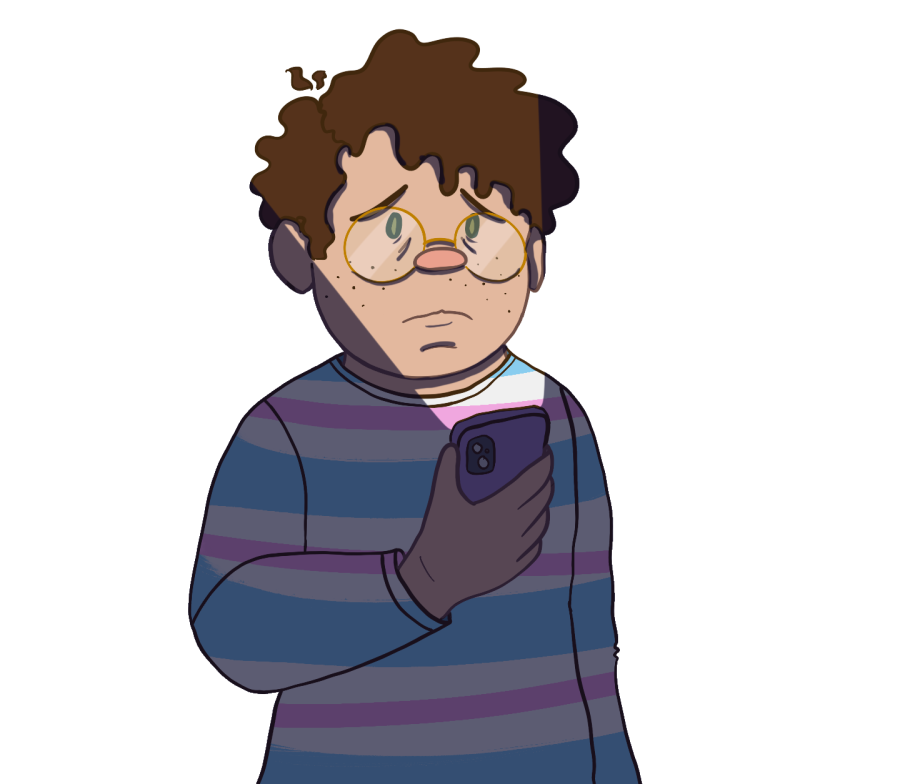Self-preservation comes first for transgender youth
I know I’m not alone when I say I’m tired. As a student, there are already a million and two things to keep track of: papers, meetings and the email I forgot to send that I remember suddenly at 4:30 a.m. when I should be asleep. When I ask my friends how they’re doing, the answer is usually “I’m tired, but good,” if not just “I’m really tired.” And of course, neither global nor local panic is the cure for exhaustion. For the trans* community, the past week has been one of deep weariness.
Texas Attorney General Ken Paxton’s opinion that providing gender-affirming healthcare to transgender children and teenagers is child abuse did not surprise me. Nor was I shocked when Governor Greg Abbott affirmed the opinion, directing the public to report trans youth receiving this care to legal authorities. Bills have swept the U.S. in the past year attempting to prohibit healthcare for trans youth, but for those unattuned to anti-trans legislation, the transphobia within them is much more covert. Whereas Paxton and Abbott spoke the harsh words aloud as if written for the headlines, their sentiment typically lies in the fine print of multiple page-long bills that most will never care to read.
I read this news last week moments after waking up and rolling over to yank my phone off its charger. The pillowcase lines were still imprinted on my face as I felt the familiar sensation of dread sink into my bones like molten lead. On Twitter and Instagram and Facebook, I saw outrage and shame and confusion. I just felt tired.
Although I’m now 21, I was 16 when I first started hormone replacement therapy. I sat on a waitlist for months in St. Louis, a hub for trans medicine in a state that is not much friendlier toward us than Texas. My thoughts go to the trans teenagers I know in both Missouri and Texas who aren’t yet 18, who now face state surveillance as if the prying eyes of classmates, teachers and random strangers weren’t enough. When affirming a trans child is child abuse, it’s no longer such a lucky draw to come out to an accepting family. Never mind the children living on the streets because their parents couldn’t bear to have a trans child; now, full embodied love is a worthy cause for separation.
When I find myself cornered with the despair coming from these attacks on trans people’s right to live, I sometimes forget to take care of myself. Self-worth ceases to exist as a physical concept when it becomes a point of discussion. While pundits debate the abstract topic of self-determination and whether or not trans people should be allowed to fulfill it, I lay in my bed for hours with a grumbling stomach and a headache from too many thoughts crashing through my skull.
The moment I get up, drink water and eat something is the moment I remember that trans self-care is resistance to opinions like Paxton’s and Abbott’s. Taking a shower and telling myself I love myself ends the debate over my body and my worth.
I could list action items for every reader to do: donate to this organization, call this state representative, post this infographic on your Instagram story. But frankly, the first step trans people need to take is directing the energy inward before assuming responsibility for repairing the damage. Acknowledging the need for soul-healing self-care provides a strong foundation for the steps that follow. We’re tired. We deserve to rest.
*Trans with an asterisk represents all those who fit under the trans umbrella, including non-binary, gender non-conforming and other identities.

I am a senior French and Earth Systems Science double major from St. Louis, MO. When I'm not wearing my EIC hat, I am also a Chapel | Spiritual Life Fellow,...

I'm a senior Computer Science major and a Classical Studies minor from Newton, North Carolina with a passion for art. I also work at the Center for Experiential...















